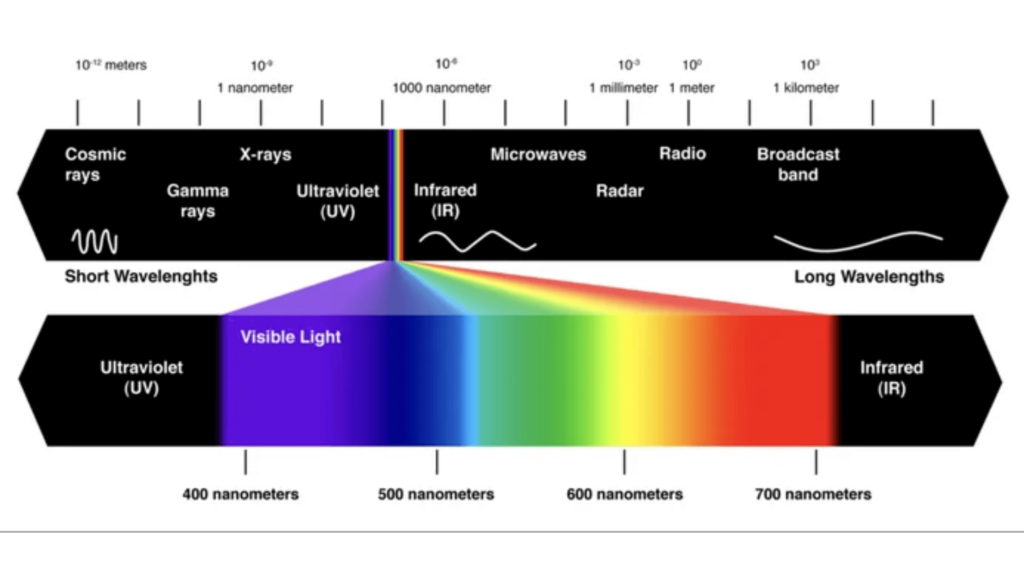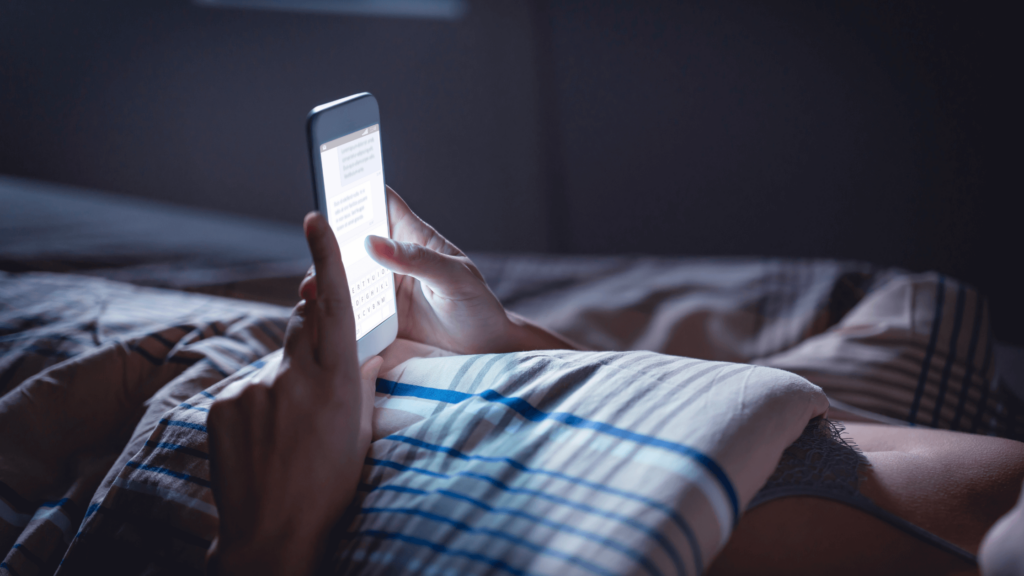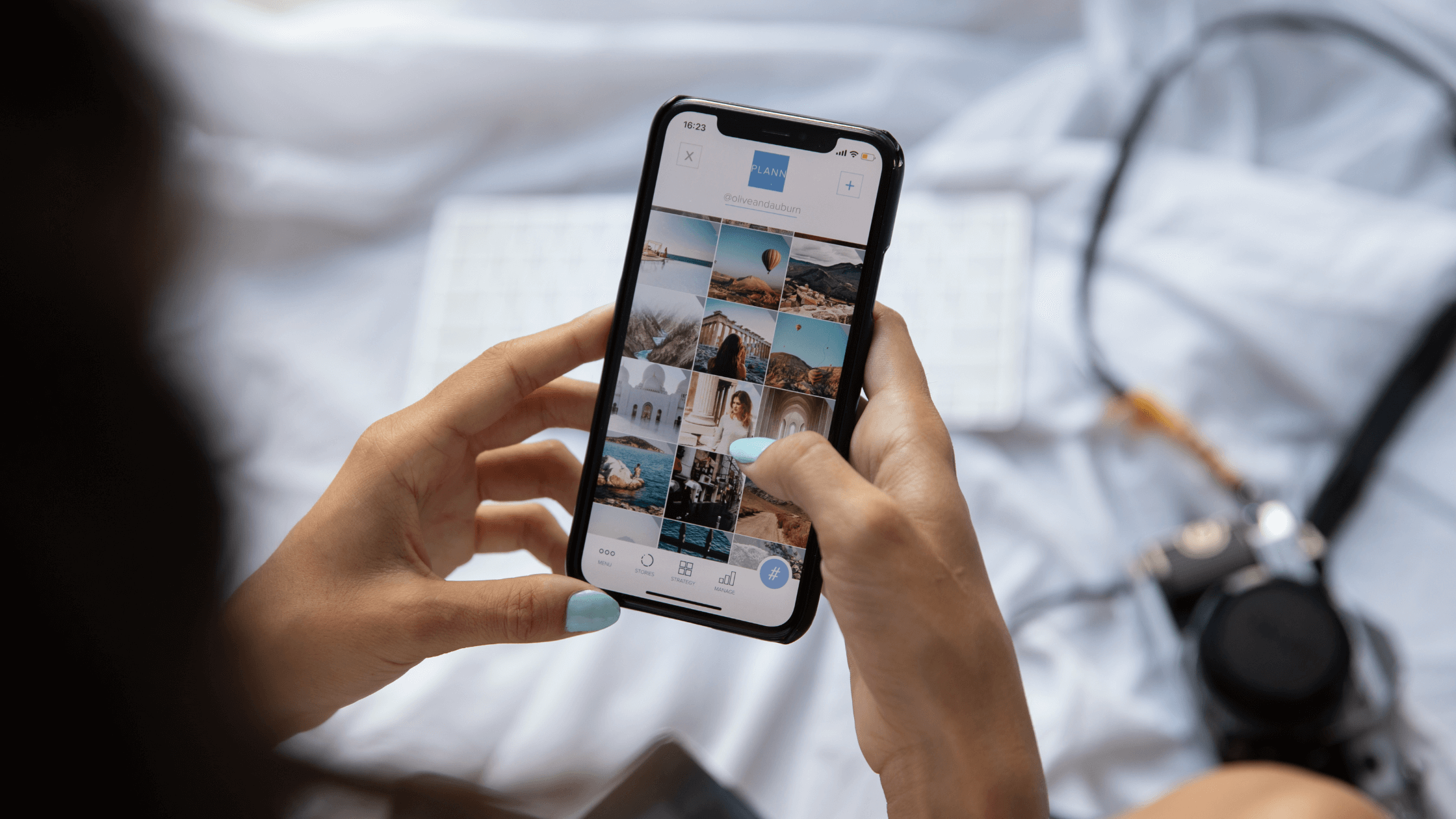Whether you’re putting in full days at the computer working in AutoCAD and Revit or just catching up on Instagram reels after a long shift, your eyes are exposed to hours of blue light from digital devices. While research hasn’t shown blue light to cause direct damage to the eyes, it can disrupt your sleep cycle, and staring at screens can reduce your blink rate and cause eye fatigue. To protect your eyes, use blue-light-filtering glasses, get regular eye checkups, eat an antioxidant-rich diet, and take supplements like zinc and beta-carotene.
Quick look
- Visible light runs from 380-700 nanometres; blue light is between 450 and 495 nm.
- Although blue light has not been shown to damage eyes, looking at screens can cause eye strain and fatigue.
- Blue light can interrupt melatonin production, disrupt sleep cycles, and decrease sleep quality.
- Maintain good eye health with regular eye exams, a diet rich in antioxidants like lutein and astaxanthin, and taking eye-enriching supplements like vitamins C and E.
What is blue light?
Visible light runs from a spectrum of 380 nanometers (violet light) to 700 nanometers (red light). Shorter light waves emit more energy, and longer ones emit less energy. Blue light has very short, high-energy waves and plays a role in regulating our sleep-wake cycle.

We often think of sunlight as warm and yellow, but it contains all colors in the visible light spectrum—including blue. So, whether working on an outdoor job site or touring a new development, you absorb blue light. However, artificial sources like LED lights, smartphones, tablets, and computer screens also emit blue light, which increases your daily exposure beyond natural levels.
The impact of blue light on the eyes
Unlike UV rays, which can cause sunburn and cancer, blue light isn’t necessarily harmful to your eyes in small doses. Although long-term research into the subject is lacking, preliminary studies have shown that contrary to popular belief, artificial blue light from digital devices doesn’t directly damage the eye or cause eye strain.
Eye strain does occur when using screens for long periods, but not because of blue light. Instead, eye fatigue from digital devices occurs because we tend to blink less while staring at a screen. In most situations, you blink approximately 15 times per minute, but your blink rate is cut in half when staring at a screen. Fewer blinks mean less lubrication for the eye, which can cause dry eyes and eye fatigue.
However, we can’t definitively rule out the possibility that blue light has long-term effects on eye health. Without long-term studies, it’s better to be safe than sorry. Using blue light filters on your devices or wearing blue-light-blocking glasses can help reduce the effects of blue light, especially if you work long hours on digital devices.
Blue light and sleep

While the jury is out on how it affects eye health, a significant body of research shows that the blue light emitted from smartphones, TVs, and tablets can interrupt your circadian rhythm and make it harder to fall asleep.
Exposure to blue light can decrease sleep quality and duration, meaning you’ll get worse sleep and spend fewer hours between the sheets. Studies show that staring at the bright screens of TVs, smartphones, and tablets in the evening can also delay and disrupt melatonin production and disrupt your sleep.
It’s crucial to get enough rest when working in construction. Poor sleep can lead to fatigue and reduced focus, creating safety risks on the job site. To avoid blue light messing with your sleep schedule, experts recommend avoiding screens for at least two hours before bed or investing in blue light-blocking glasses or light-altering software if screen use is necessary.
Maintaining good eye health
While blue-light-blocking glasses can protect your sleep cycle, adopting healthy habits, changing your diet, and adding supplements can help keep your eyes healthy and strong.
Lifestyle habits
When using smartphones, tablets, and computers, you view things at close range, which can cause eye strain and fatigue. To preserve your eye health, experts recommend following the 20-20-20 rule: every 20 minutes, look at something at least 20 feet away for at least 20 seconds.
Adjusting your screen brightness and contrast can help you avoid eye strain and improve your eyes’ ability to focus. If you work on screens for more than a few hours daily, you may also want to use saline eye drops or artificial tears to ease dry eyes.
Regularly visiting an optometrist to screen for eye disease and check your vision is another habit that can help you maintain eye health. Checkups can help catch early warning signs of macular degeneration and prevent further damage. It’s not unusual for your eyes to change as you age, and you may need reading glasses or prescription lenses.
Diet
A nutrient-rich diet can support long-term eye health by ensuring your eyes have the necessary vitamins and nutrients. Eating plenty of foods high in antioxidants can help protect against oxidative stress and prevent potential eye damage.
Lutein and zeaxanthin are antioxidants found in leafy greens like spinach and kale. They help filter blue light and prevent eye disease. Astaxanthin is another antioxidant commonly found in salmon and shrimp. Studies have shown that people with diets rich in astaxanthin experienced “significant relief from eye strain.”
Supplements
In an ideal world, your diet would provide all the nutrients you need to build strong bones, high energy levels, and healthy eyes. In the real world, you might visit that food truck on the job site a little more often than you’d like—supplements can be a lifesaver to help you cover all your nutritional bases.
- Vitamin C: Supports eye tissue health and reduces oxidative damage.
- Vitamin E: Helps protect cells in the eyes from free radicals.
- Zinc: Assists in transporting Vitamin A to the retina for proper vision.
- Beta-carotene: Converts into Vitamin A, essential for night vision.
Bottom line
Blue light can disrupt your sleep, and long hours of staring at screens can contribute to fatigue and eye strain. Working in the construction industry, you’ve become accustomed to protecting your eyes with safety goggles; now, you can also prevent eye damage by adopting healthy screen habits, maintaining a nutritious diet, and taking supplements.
Learn more ways to stay healthy, happy, and safe under the hard hat by signing up for our newsletter and following us on social media!


